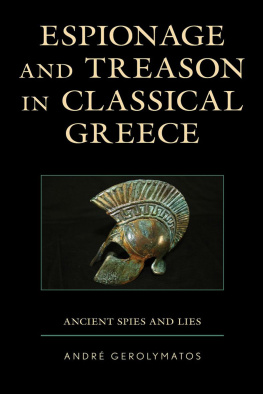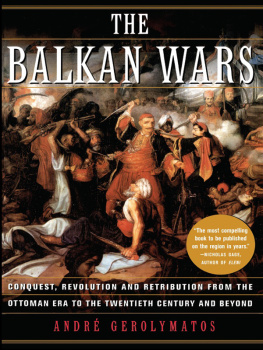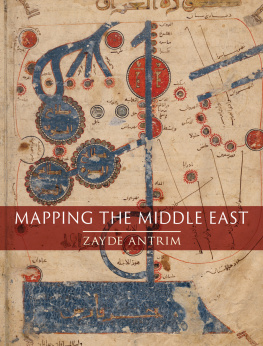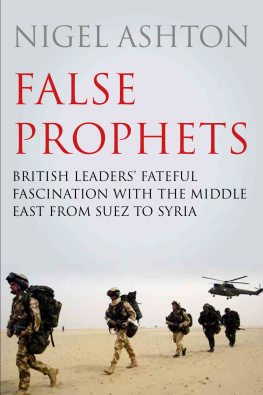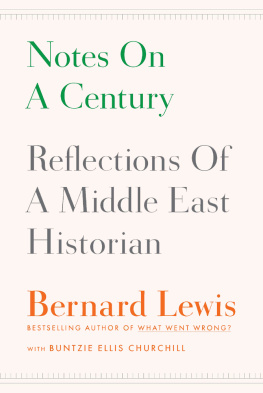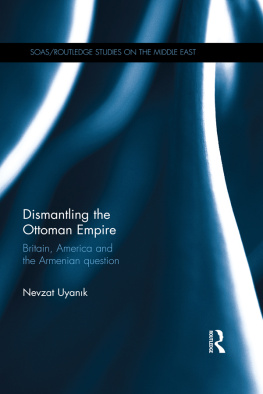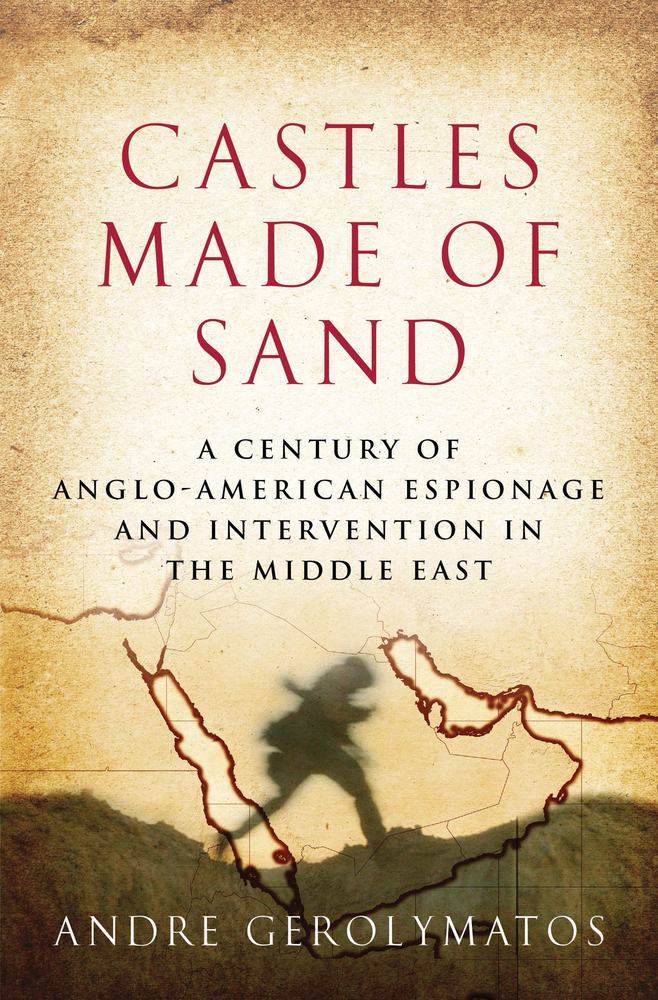
TO BEVERLEY ,
the beautiful sunsets are never ending.
CONTENTS
ONE
TWO
THREE
FOUR
FIVE
SIX
SEVEN
EIGHT
NINE
TEN
ELEVEN
TWELVE
THIRTEEN
FOURTEEN
FIFTEEN
SIXTEEN
SEVENTEEN
EIGHTEEN
NINETEEN
TWENTY
ACKNOWLEDGMENTS
This project has been a unique journey that has afforded me the opportunity to gain insight into the complex and, at times, tragic history of Anglo-American intelligence operations and their impact on the Muslim world from the Middle East to South Asia.
If this book falls short of achieving its objectives, and for any errors, the fault is mine; however, it is my pleasant duty to thank all those who have given of their time and energy in order for me to complete this study. As always, I am grateful to my agent, Bill Hanna, whose support and guidance over the years has made it possible for me to undertake and complete several books. I also would like to acknowledge Thomas Dunne of St. Martins Press for having faith in this project and Rob Kirkpatrick for his insightful editorial suggestions and valuable comments.
I am thankful to Graham Fuller, a former vice chairman of the National Intelligence Council of the CIA, for useful comments on parts of the manuscript. Furthermore, I am indebted to Professors Amikam Nachmani and Shlomo Shpiro at Bar Ilan University for their valuable help with research in Israel. The support of the Social Sciences and Humanities Research Council of Canada provided me with a generous grant that made the research possible.
The book would not have been realized without a group of students from Simon Fraser University who ably assisted me in the research phase. Vanessa Rockel and Julian Brooks worked with me from the beginning and later were joined by Adrian OSullivan, Kelly Hammond, Simon Pratt, Lucia Petersen, and Inbal Negbi. I am appreciative of the staff of the Hellenic Studies Program, Maria Hamilton and Trina Mateus, for their help with a variety of administrative tasks.
Finally, to my wife, Beverley, editor, lifelong companion, and best friend for her patience, encouragement, and faith in me, I owe the greatest debt.
PROLOGUE:
STORIES FROM THE BAZAAR
The storyteller sits on a tattered rug spread across the grime and dust of the ground near the edge of the bazaar. He will mesmerize his audience with stories of war, intrigue, and guile from a bygone golden age. In the modest bazaars of small towns and out-of-the-way neighborhoods in large cities, he is the connection between past and present, and a sojourn into escapism for the humble folk who can spare a coin or two. The priests and mullahs may have the souls of the faithful, but this street historian captures and holds their imaginationif only for a brief time.
A man such as our storyteller lacks the practical skills to secure employment in the cities or villages and drifts from place to place scratching out a living on the fringes of society. In the Balkans, men such as these are usually Gypsies leading a tumbleweed existence from town to town, effortlessly crossing in and out of state borders.
In the Middle East, storytellers do not belong to the nomadic tribes that have drifted across the deserts for millennia. Besides, such men would be too old and too weary to take part in punishing raids for booty or revenge. Our storyteller is equally unsuitable to the dozens of secret societies and paramilitary organizations challenging local authorities for control of the street. No, our conjurer of tales is a loner. His stories are distilled from a variety of conspiracy theories legitimized over time and by sheer repetition, as well as from historical accounts filtered through myth and legend. Yet, despite the inaccuracies and convoluted interpretations of the past, for a brief moment in time, the storyteller reigns supreme in the marketplace.
After a small crowd gathers, the storyteller is ready to begin his performance. He shifts the weight of his body and, crossing his legs, settles in a comfortable position. His theme is the Crusades, but more importantly the story that he cobbles together from parts of history, myth, and conspiracy theory will stress that the success of Western armies was a shabby victory won by subterfuge, clandestine tricks, and unspeakably brutal force. For an instant, he glances at the eager faces of the young and the expectant faces of the old who have distilled into a small crowd around him. He takes a deep gulp of the cool evening air and in a soft melodic voice begins his tale with the hindsight of nostalgia.
In the late 1950s, I came across such a storyteller in a small bazaar on the outskirts of Athens. He transfixed his audience with tragic and grisly tales spun out of the Crusades. He was a Gypsy, and the bazaar at that time was as common in Greece as it is today in some parts of the Middle East. It struck me that he drew on the Crusades for the theme of his stories and assumed that, by elaborating on the cruelty of Western Christians against the Muslims, this theme would find resonance with an Eastern Orthodox audience. He was not far off, at least with respect to the Fourth Crusade.
In the convoluted cauldron of Balkan myth and legend, the sack of Constantinople by the Fourth Crusade in 1204 remains a bitter and painful legacy. Accordingly, the sympathy of the Eastern Orthodox, insofar as the Fourth Crusade is concerned, lies with the Muslims; the Franks (the general name for the Crusaders) are depicted as the scourge of civilization.
My storyteller also touched on another important theme that appealed to his audiencethe notion of waging war against a superior force by subterfuge, cunning, espionage, and intrigue. Generally the role of spy and saboteur is frowned upon by most cultures and considered beneath the martial dignity of a warrior, although in times of defeat and occupation by a foreign opponent it was, and still is, acceptable in most societies to resort to clandestine warfare. In the Middle East, such stories (along with others) of deception, espionage, and subterfuge are transmitted via the unofficial culture that exists (and continues to do so) beyond the watchful eye of the authorities.
As was the case in the bazaar in Athens, which operated without official sanction, the marketplace in the Middle East is a venue for the transmission of unedited ideas and information carried by word of mouth that provide the building blocks of legend and mythology. The Arab Street, the masses that make up the urban poor, feed on the retelling of a variety of stories, including that of the Crusades, along with ample doses of conspiracy theories. At the end of the twentieth century, the notion of the Crusades as a grand conspiracy of the West received new impetus when in 1990 President George H. W. Bush proclaimed a new world order.
Although Bushs remarks referred to the postCold War era in the Middle East, writes the controversial Daniel Pipes, the phrase was widely understood as signaling a plan for the United States, master of the new world to establish hegemony over the entire globe.
Yet this conspiracy theory is a by-product of the legacy of the Crusades that has continued to resonate in the region since the end of the thirteenth century. As noted by Carole Hillenbrand, Akbar Ahmed, a prominent Islamic scholar, remarks:
The memory of the Crusades lingers in the Middle East and colours Muslim perceptions of Europe. It is the memory of an aggressive, backward and religiously fanatic Europe. This historical memory would be reinforced in the nineteenth and twentieth centuries as imperial Europeans once again arrived to subjugate and colonize territories in the Middle East. Unfortunately this legacy of bitterness is overlooked by most Europeans when thinking of the Crusades.


